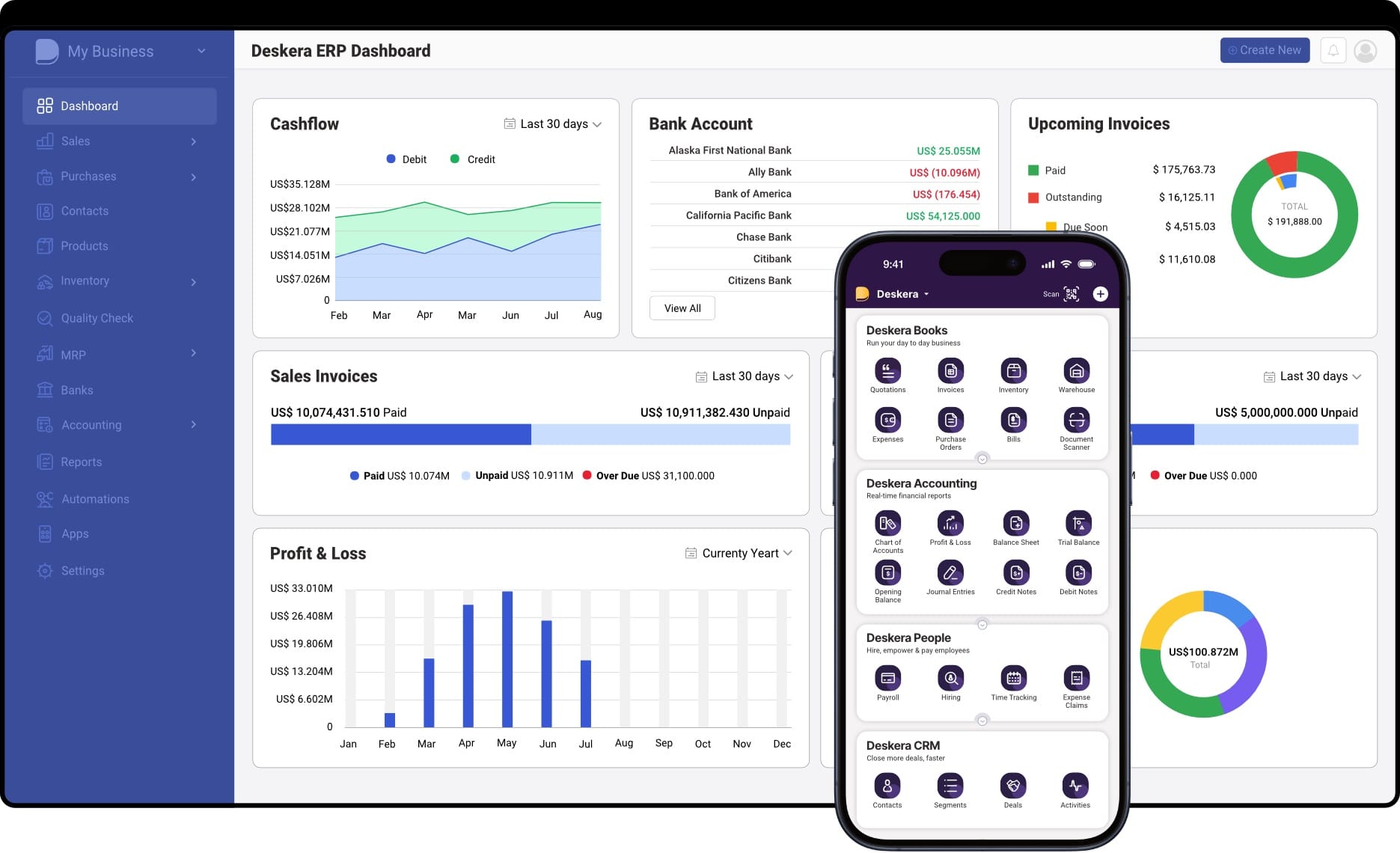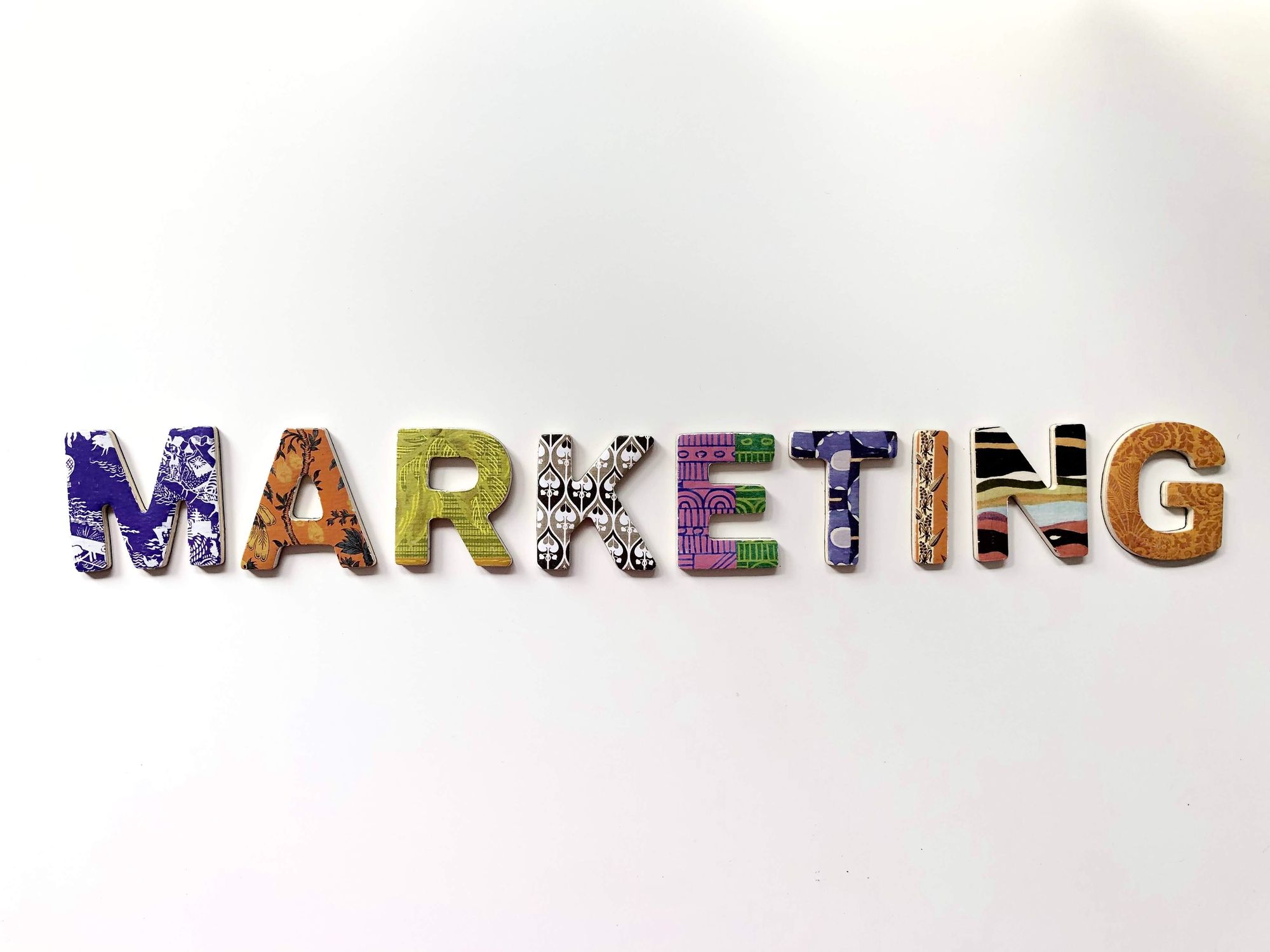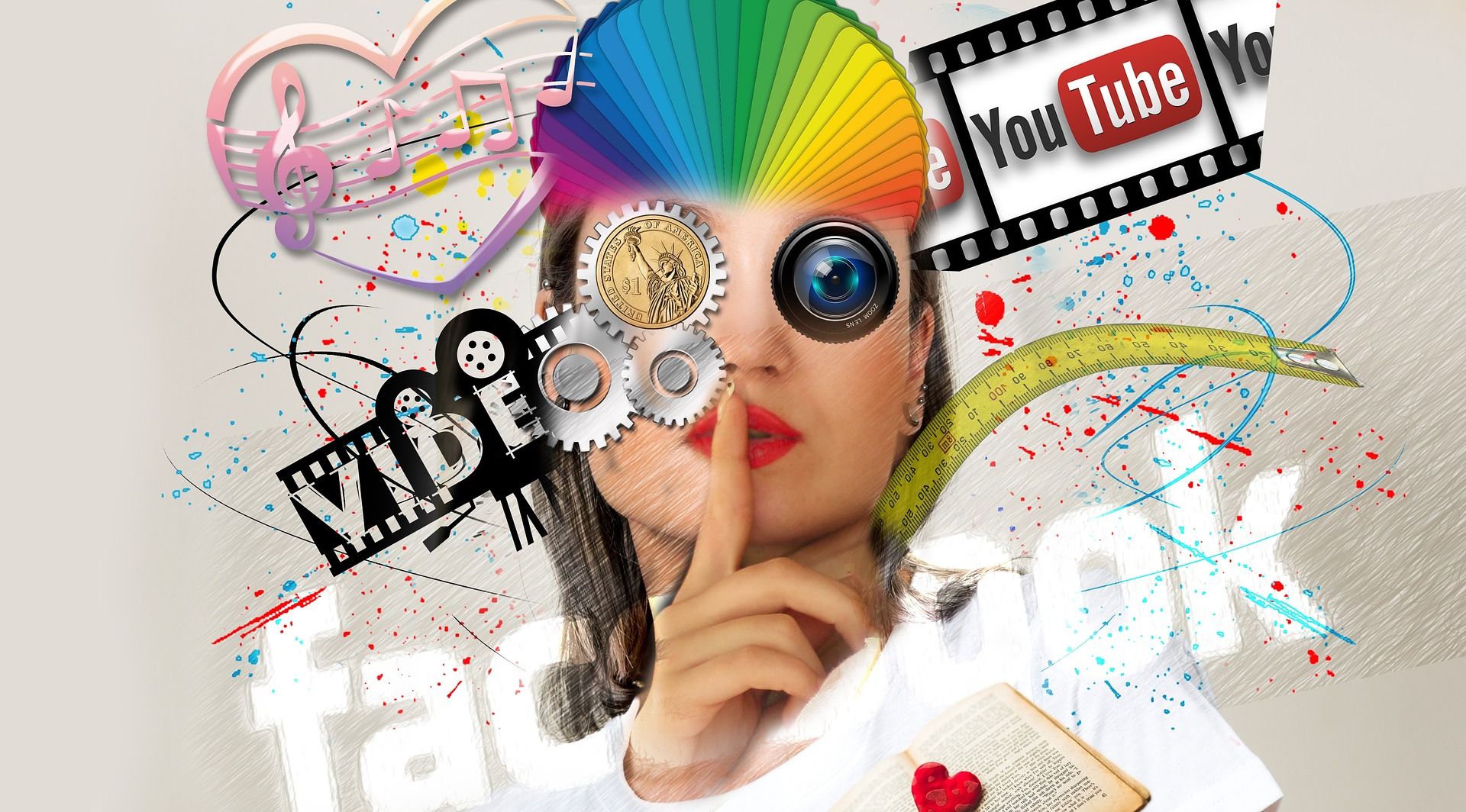Ever wondered why some brands dominate your social media feed while others quietly fade away? The answer lies in the power and diversity of marketing. From traditional billboards to AI-powered digital campaigns, marketing has evolved into a complex ecosystem designed to reach audiences wherever they are. In today’s hyperconnected world, businesses that understand and leverage the different types of marketing gain a competitive edge in attracting, engaging, and retaining customers.
The numbers over the past year clearly show how marketing has transformed. Global digital ad spend surged by 63% to reach $626.9 billion in 2024, underscoring the growing focus on online visibility and performance-driven campaigns. Mobile devices accounted for 68% of all website traffic, reaffirming the dominance of mobile-first strategies in brand outreach. At the same time, e-commerce sales climbed to $6.5 trillion in 2024, a 21% year-over-year increase, proving how rapidly digital shopping habits are shaping business priorities.
The rise of artificial intelligence has further reshaped how marketers operate. By 2024, over half of marketing professionals had adopted generative AI tools for content creation, with about 42% using them daily or weekly to enhance productivity and creativity. Yet, traditional methods continue to hold their ground — email marketing, for instance, delivered an impressive $36 ROI for every $1 invested, and nearly 50% of consumers engaged with promotional emails offering discounts. The key to success in 2025 lies in blending innovative digital techniques with proven traditional strategies.
To connect these efforts seamlessly, Deskera ERP provides an integrated platform that unifies marketing, sales, accounting, and inventory management. Its AI-driven insights, workflow automation, and real-time reporting empower businesses to make smarter decisions and maximize campaign efficiency. With Deskera ERP, companies can streamline their operations, track marketing ROI, and drive sustainable growth — ensuring every marketing dollar spent contributes to long-term business success.
What Is Marketing?
Marketing is the process of understanding customer needs, creating value, and building strong relationships that drive business growth. It’s more than just selling a product — it’s about communicating the right message to the right audience at the right time. Whether it’s through a TV commercial, a social media ad, or an email newsletter, marketing connects businesses with potential customers by sparking interest and encouraging action.
At its core, marketing revolves around the 4Ps — Product, Price, Place, and Promotion. These elements guide how a company positions its offerings in the market. The product addresses customer needs, the price reflects its value, the place ensures accessibility, and promotion spreads awareness. Together, they form the foundation of any successful marketing strategy.
Modern marketing has evolved to include both traditional and digital methods, allowing businesses to reach audiences across multiple touchpoints. From print ads and events to SEO, social media, and influencer collaborations, today’s marketing landscape is all about personalization and engagement.
In essence, marketing is the heartbeat of every business — a blend of creativity, psychology, and analytics that turns ideas into lasting customer relationships and brand loyalty.
Importance of Marketing for Businesses
Marketing plays a crucial role in helping businesses grow, compete, and sustain themselves in today’s dynamic market. It’s not just about promoting products — it’s about understanding customers, communicating value, and creating meaningful connections that drive loyalty and sales. Whether a company is a startup or an established enterprise, effective marketing ensures visibility, builds reputation, and fuels long-term success.
Below are some key reasons why marketing is essential for every business:
1. Builds Brand Awareness
Marketing introduces your brand to potential customers and helps it stand out in a crowded marketplace. Through consistent messaging, design, and storytelling, businesses can shape public perception and create a lasting impression. A strong brand presence leads to recognition, trust, and customer preference over competitors.
2. Drives Customer Engagement
Modern marketing encourages two-way communication. Through social media, personalized emails, and content campaigns, businesses can interact directly with their audiences. This engagement not only builds relationships but also provides valuable insights into customer behavior, helping brands tailor their offerings more effectively.
3. Boosts Sales and Revenue
Every marketing strategy ultimately aims to generate revenue. By creating awareness, nurturing leads, and encouraging conversions, marketing drives sales growth. Well-targeted campaigns can attract high-quality leads, convert them into loyal customers, and significantly improve return on investment (ROI).
4. Helps Understand Market Needs
Effective marketing relies on research and data analysis to identify trends, preferences, and customer pain points. This understanding enables businesses to develop products or services that meet real-world needs. It also helps in adapting strategies to evolving market conditions, ensuring the company stays relevant.
5. Strengthens Customer Loyalty
Marketing doesn’t end after a sale — it continues by keeping customers engaged and satisfied. Loyalty programs, feedback surveys, and personalized offers encourage repeat business and advocacy. Building strong customer relationships ensures long-term profitability and a stable brand reputation.
6. Supports Business Growth and Expansion
When businesses look to scale or enter new markets, marketing provides the roadmap. It helps identify target segments, evaluate competition, and position the brand strategically. A well-executed marketing plan can open new opportunities for partnerships, product launches, and geographic expansion.
7. Provides Measurable Results
With digital marketing tools and analytics, businesses can now measure campaign performance in real-time. Metrics like website traffic, conversion rates, and engagement levels allow companies to refine strategies for maximum impact. This data-driven approach ensures that marketing investments deliver tangible results.
8. Enhances Competitive Advantage
In a world where consumers are constantly exposed to choices, marketing helps a business differentiate itself. Clear value propositions, creative campaigns, and consistent branding can position a company ahead of competitors. Businesses that invest in smart marketing are more likely to adapt quickly and thrive in changing markets.
In summary, marketing is the driving force that connects businesses to their customers, fuels growth, and sustains long-term success. It’s not just a business function — it’s a strategic tool that defines how a brand is seen, heard, and remembered.
What Are the Different Types of Marketing?
Marketing has evolved far beyond traditional advertisements and cold calls. Today, businesses can choose from a wide range of marketing types — each designed to target specific audiences, leverage unique platforms, and achieve different business goals. Understanding these marketing types helps companies create more effective and well-rounded strategies.
Below are the most common and impactful types of marketing every business should know:
1. Traditional Marketing
Traditional marketing refers to offline methods that have been used for decades to reach broad audiences. This includes TV and radio ads, print advertising (newspapers, magazines, brochures), billboards, and direct mail.
- Best for: Local and mass-market campaigns
- Key benefit: Builds strong brand recall and credibility through tangible media
2. Digital Marketing
Digital marketing covers all online promotional activities that connect brands with customers via digital channels.
- Examples: Search engine optimization (SEO), pay-per-click (PPC) ads, social media marketing, email marketing, content marketing, and online display advertising.
- Best for: Businesses looking to reach targeted audiences globally
- Key benefit: Offers measurable results, data-driven insights, and cost-effective scalability
3. Content Marketing
Content marketing focuses on creating and sharing valuable, relevant, and consistent content to attract and retain a clearly defined audience.
- Examples: Blog posts, videos, podcasts, case studies, infographics, and eBooks
- Best for: Building brand authority and trust
- Key benefit: Establishes long-term relationships through education and storytelling
4. Social Media Marketing
This type leverages platforms like Instagram, LinkedIn, Facebook, X (formerly Twitter), TikTok, and YouTube to build brand awareness and engage with audiences.
- Best for: Increasing engagement and community building
- Key benefit: Encourages two-way communication and helps brands connect directly with customers
5. Email Marketing
Email marketing remains one of the most effective ways to nurture leads and maintain customer relationships.
- Examples: Newsletters, promotional offers, event invites, and personalized recommendations
- Best for: Retaining customers and encouraging repeat purchases
- Key benefit: High ROI — studies show email marketing delivers up to $36 for every $1 spent
6. Influencer Marketing
Influencer marketing involves partnering with social media personalities or industry experts to promote products.
- Best for: Reaching niche audiences with authentic endorsements
- Key benefit: Builds credibility and trust quickly through influencer advocacy
7. Affiliate Marketing
This performance-based model allows affiliates or partners to earn a commission for promoting a company’s products.
- Best for: E-commerce and online businesses
- Key benefit: Expands brand reach with minimal upfront investment
8. Event and Experiential Marketing
Event marketing creates memorable brand experiences through trade shows, product launches, webinars, or pop-up events.
- Best for: Engaging audiences in person or virtually
- Key benefit: Builds emotional connections and deepens brand loyalty
9. Inbound and Outbound Marketing
- Inbound marketing attracts customers through valuable content, SEO, and social media.
- Outbound marketing involves proactive outreach such as ads, cold calls, and direct mail.
- Best for: Combining attraction and outreach strategies
- Key benefit: Balances customer-driven and business-driven approaches for maximum impact
10. Emerging Marketing Types
With technology advancing rapidly, new forms of marketing are transforming how brands communicate:
- AI Marketing: Uses artificial intelligence for personalization, automation, and predictive analytics.
- Video Marketing: Leverages short-form content on platforms like YouTube Shorts and Reels to boost engagement.
- Viral & Guerrilla Marketing: Focuses on creative, unconventional tactics to capture public attention quickly.
- Sustainability Marketing: Highlights eco-friendly practices to appeal to conscious consumers.
Each type of marketing serves a distinct purpose — some focus on reach, others on engagement or conversion. The key is to combine multiple approaches to build a strong, integrated strategy. Businesses that adapt to evolving marketing trends, analyze performance, and stay customer-centric are best positioned to thrive in the competitive landscape of 2025.
Traditional Marketing
Traditional marketing refers to the offline methods businesses have relied on for decades to reach customers. Unlike digital marketing, which leverages online platforms, traditional marketing uses physical and broadcast media to connect with a broad audience. Despite the rise of digital strategies, traditional marketing remains effective for building brand awareness and credibility, especially in local and mass-market campaigns.
Examples of Traditional Marketing
- Print Advertising: Newspapers, magazines, brochures, and flyers.
- Broadcast Media: TV and radio commercials that reach a large audience.
- Outdoor Advertising: Billboards, posters, banners, and transit ads.
- Direct Mail: Catalogs, postcards, and promotional letters sent to households.
Key Benefits
- Wide Reach: Traditional marketing can target large audiences quickly, making it ideal for brand awareness campaigns.
- Tangible Impact: Physical ads and print materials create a sense of credibility and permanence.
- Simplicity: Easy to understand and execute without needing advanced technology or analytics.
Limitations
- Difficult to measure ROI accurately compared to digital campaigns.
- Often more expensive due to production and distribution costs.
- Limited targeting capabilities; reaching specific demographics can be challenging.
Despite these limitations, traditional marketing still complements digital strategies well. Many businesses use a hybrid approach, combining offline campaigns with digital marketing to maximize reach and engagement.
Digital Marketing
Digital marketing encompasses all online strategies and channels that businesses use to reach, engage, and convert their target audience. Unlike traditional marketing, digital marketing allows for real-time tracking, precise targeting, and data-driven decision-making, making it essential in today’s technology-driven world. With more consumers spending time online, digital marketing has become the cornerstone of modern business growth.
Examples of Digital Marketing
- Search Engine Optimization (SEO): Optimizing websites to rank higher on search engines and attract organic traffic.
- Pay-Per-Click (PPC) Advertising: Paid ads on search engines or social media that generate immediate traffic and leads.
- Social Media Marketing: Using platforms like Instagram, LinkedIn, X (formerly Twitter), TikTok, and Facebook to promote products and engage audiences.
- Email Marketing: Personalized emails and newsletters designed to nurture leads and drive conversions. Can be used to follow up with existing customers or with knowledge of how to find an email address for a new prospect.
- Content Marketing: Blogs, videos, podcasts, infographics, and other valuable content that educates and informs customers.
- Affiliate Marketing: Collaborating with partners to promote products and earn a commission on sales.
Key Benefits
- Global Reach: Digital campaigns can target audiences worldwide, breaking geographical barriers.
- Cost-Effective: Compared to traditional methods, digital marketing often delivers higher ROI with lower upfront costs.
- Measurable Results: Metrics like website traffic, click-through rates, engagement, and conversions provide clear insights into performance.
- Personalization and Targeting: Campaigns can be tailored to specific demographics, interests, and behaviors for higher effectiveness.
Limitations
- Requires constant monitoring and optimization to remain effective.
- High competition in crowded digital spaces can make visibility challenging.
- Dependence on technology and platforms means businesses must adapt quickly to trends and algorithm changes.
In 2025, with mobile devices generating a majority of web traffic and AI-powered tools increasingly used for content creation, digital marketing has become indispensable. When combined with traditional methods, it allows businesses to create a comprehensive, multi-channel marketing strategy that reaches customers wherever they are.
Content Marketing
Content marketing focuses on creating and sharing valuable, relevant, and consistent content to attract, educate, and retain a clearly defined audience. Unlike direct advertising, content marketing builds long-term relationships by providing information, solving problems, and engaging users in meaningful ways. This type of marketing is especially effective for businesses aiming to establish authority, trust, and credibility in their industry.
Examples of Content Marketing
- Blogs and Articles: Informative posts that answer customer questions and improve SEO.
- Videos: Tutorials, product demos, explainer videos, and storytelling content.
- Podcasts: Engaging audio content for thought leadership and audience connection.
- Infographics and eBooks: Visual content that simplifies complex information and provides value.
- Case Studies: Real-world examples that demonstrate expertise and success.
Key Benefits
- Builds Brand Authority: High-quality content positions a business as a knowledgeable and trustworthy leader in its field.
- Boosts SEO and Organic Traffic: Regular content helps websites rank higher in search engines, attracting potential customers.
- Supports Lead Nurturing: Informative content guides prospects through the buyer’s journey, improving conversion rates.
- Cost-Effective: Content marketing provides long-term value as blogs, videos, and guides continue to attract traffic over time.
Limitations
- Requires consistency and commitment to maintain quality and relevance.
- Results are often slower compared to paid campaigns; patience is key.
- Content saturation in certain industries makes standing out more challenging.
In 2025, content marketing continues to grow in importance, especially when integrated with AI tools for content creation, social media distribution, and email campaigns. By providing valuable content at every stage of the customer journey, businesses can strengthen relationships, enhance engagement, and drive sustainable growth.
Social Media Marketing
Social media marketing leverages platforms like Instagram, LinkedIn, Facebook, TikTok, YouTube, and X (formerly Twitter) to connect with audiences, promote products, and build communities. This type of marketing focuses on engagement, brand visibility, and fostering direct communication between businesses and consumers.
Examples of Social Media Marketing
- Organic Posting: Sharing updates, tips, and stories to grow followers and engagement.
- Paid Campaigns: Targeted ads to reach specific demographics, locations, and interests.
- Influencer Collaborations: Partnering with influencers to expand reach and credibility.
- Live Sessions and Webinars: Real-time interaction that builds trust and engagement.
Key Benefits
- Direct Customer Engagement: Social media allows businesses to interact personally with their audience, answer questions, and resolve issues.
- Brand Awareness: Viral posts, shares, and hashtags can significantly increase brand visibility.
- Targeted Advertising: Advanced algorithms enable precise audience targeting for higher conversion rates.
- Performance Tracking: Analytics tools measure engagement, reach, click-through rates, and ROI in real time.
Limitations
- Requires consistent effort and active community management.
- High competition can make organic reach challenging without paid support.
- Rapid platform changes demand businesses adapt quickly to trends and algorithms.
Social media marketing in 2025 continues to evolve with short-form video content, AI-driven insights, and immersive experiences. When combined with other marketing strategies like content and email marketing, it forms a powerful tool for building brand loyalty, driving engagement, and generating measurable results.
Email Marketing
Email marketing is one of the most cost-effective and high-ROI marketing strategies available to businesses. It involves sending personalized messages, newsletters, promotions, and updates directly to a subscriber’s inbox. Unlike social media or paid ads, email marketing provides direct access to an engaged audience, making it an essential tool for nurturing leads and retaining customers.
Examples of Email Marketing
- Newsletters: Regular updates sharing news, tips, or insights about your brand or industry.
- Promotional Emails: Discounts, special offers, or product announcements designed to drive sales.
- Drip Campaigns: Automated sequences that guide prospects through the buyer’s journey.
- Transactional Emails: Order confirmations, shipping notifications, and follow-ups that enhance customer experience.
Key Benefits
- High ROI: Studies show email marketing delivers $36 for every $1 invested, making it one of the most profitable marketing channels.
- Personalization and Segmentation: Emails can be tailored to customer preferences, behaviors, or purchase history, increasing engagement.
- Direct Communication: Provides a one-on-one channel with prospects and customers, fostering stronger relationships.
- Trackable Performance: Metrics like open rates, click-through rates, and conversions help optimize campaigns for maximum effectiveness.
Limitations
- Overuse or poor targeting can lead to unsubscribes and spam complaints.
- Requires a well-maintained subscriber list and regular testing to remain effective.
- Content must be engaging and valuable to prevent low engagement rates.
With AI-powered tools in 2025, businesses can now automate email creation, segment audiences more precisely, and analyze results faster than ever. This makes email marketing a powerful, scalable strategy for building loyalty and driving sales.
Influencer and Affiliate Marketing
Influencer marketing leverages the reach and credibility of social media personalities or industry experts to promote products and services. By partnering with influencers who align with the brand’s values, businesses can reach niche audiences in a more authentic and engaging way.
Affiliate marketing, on the other hand, is a performance-based approach where partners or affiliates earn a commission for promoting a company’s products or services. This allows businesses to expand their reach without significant upfront costs.
Key Benefits of Influencer and Affiliate Marketing
- Extended Reach: Influencers and affiliates can introduce brands to new, highly targeted audiences.
- Credibility and Trust: Recommendations from respected personalities or partners increase brand trust.
- Performance-Based: Affiliate marketing ensures businesses only pay for measurable results, such as clicks or sales.
- Cost-Effective Growth: These strategies often require lower initial investment compared to traditional advertising.
Limitations
- Success depends on selecting the right influencer or affiliate.
- Maintaining transparency and authenticity is crucial to avoid skepticism.
- Campaign performance may vary depending on audience engagement and market trends.
In 2025, AI analytics help brands identify the most suitable influencers, track performance in real time, and optimize campaigns for maximum ROI. Combining these strategies with content, email, and social media marketing strengthens overall reach and impact.
Event and Experiential Marketing
Event marketing creates memorable experiences that connect audiences with a brand on a personal level. It can take place in physical venues, online platforms, or a hybrid model, allowing businesses to showcase products, educate customers, and build relationships.
Examples of Event Marketing
- Trade Shows and Expos: Display products, network with industry professionals, and generate leads.
- Product Launches: Create buzz and excitement for new offerings.
- Webinars and Virtual Events: Educate and engage a wider online audience.
- Pop-Up Shops and Experiential Activations: Offer immersive, hands-on brand experiences.
Key Benefits
- Emotional Engagement: Events create personal connections that strengthen brand loyalty.
- Brand Visibility: Participation in trade shows or pop-ups boosts recognition and credibility.
- Lead Generation: Events provide direct opportunities to capture high-quality leads.
- Content Opportunities: Events generate material for social media, blogs, and PR campaigns.
Limitations
- Can be resource-intensive in terms of time, money, and planning.
- Success depends on effective promotion and attendee engagement.
- Measuring ROI can be challenging, though digital tools and analytics have made it easier.
By 2025, hybrid events and AI-powered analytics make experiential marketing more effective and measurable. Combining online and offline experiences allows brands to engage audiences creatively and gain valuable insights for future campaigns.
Inbound vs Outbound Marketing
Marketing strategies can generally be categorized into inbound and outbound marketing, each serving a unique purpose in attracting and converting customers. Understanding the difference helps businesses create a balanced approach that maximizes reach and engagement.
Inbound marketing focuses on attracting customers naturally by providing valuable content and experiences. Rather than interrupting potential customers, inbound methods draw them in through informative, engaging, or entertaining materials.
Examples of Inbound Marketing
- Blogging and content marketing
- SEO and organic search optimization
- Social media engagement
- Educational webinars and videos
Outbound marketing involves actively reaching out to potential customers through more traditional or direct methods. These strategies are proactive, aiming to generate leads by delivering the brand message directly to the audience.
Examples of Outbound Marketing
- Cold calling and direct mail campaigns
- Paid advertisements (TV, radio, display ads, PPC)
- Event promotions and trade shows
Key Benefits
- Inbound Marketing: Builds long-term relationships, establishes brand authority, and attracts highly qualified leads.
- Outbound Marketing: Provides immediate visibility, generates fast leads, and can target broad or specific audiences effectively.
- Combined Approach: Using both inbound and outbound strategies ensures businesses engage customers at every stage of the buyer journey.
Limitations
- Inbound marketing can take time to show results and requires consistent effort.
- Outbound marketing can be costly and may face lower engagement due to its interruptive nature.
- A successful strategy often depends on the right balance of both approaches.
Emerging Marketing Types
Marketing continues to evolve rapidly, especially with technological advancements and changing consumer behaviors. Emerging marketing types in 2025 focus on innovation, personalization, and creative engagement.
Examples of Emerging Marketing
- AI Marketing: Uses artificial intelligence for content generation, personalization, predictive analytics, and customer segmentation.
- Video Marketing: Short-form videos on platforms like YouTube Shorts, Instagram Reels, and TikTok drive engagement and brand awareness.
- Viral & Guerrilla Marketing: Creative, unconventional campaigns designed to capture attention and generate buzz quickly.
- Sustainability Marketing: Highlights eco-friendly practices, socially responsible initiatives, and environmentally conscious products to attract conscious consumers.
Key Benefits
- AI Marketing: Increases efficiency, reduces manual effort, and delivers hyper-personalized campaigns.
- Video Marketing: Engages audiences quickly, encourages shares, and improves brand recall.
- Viral & Guerrilla Marketing: Creates high-impact brand visibility with relatively low cost.
- Sustainability Marketing: Builds brand loyalty and trust among eco-conscious customers while supporting social responsibility goals.
Limitations
- Emerging marketing strategies may require technical expertise and creative experimentation.
- Rapidly changing trends mean businesses must adapt quickly to stay relevant.
- Some approaches, like viral campaigns, can be unpredictable and hard to replicate.
In 2025, integrating emerging marketing trends with traditional and digital approaches allows businesses to create innovative, customer-centric campaigns. Leveraging AI tools, video content, and sustainable practices ensures brands remain competitive and resonate with modern audiences.
How to Choose the Right Marketing Type for Your Business
Choosing the right marketing type is crucial for achieving business goals efficiently. With so many options available — from traditional methods to cutting-edge digital strategies — selecting the right mix can feel overwhelming. The key is to align your marketing approach with your target audience, budget, business goals, and industry trends.
1. Understand Your Target Audience
- Identify who your customers are, where they spend time, and how they consume content.
- Use surveys, analytics, and market research to gain insights into their preferences, habits, and pain points.
- Tip: Younger audiences may respond better to social media and video marketing, while B2B clients might prefer email campaigns, webinars, or LinkedIn engagement.
2. Define Your Marketing Goals
- Determine what you want to achieve: brand awareness, lead generation, sales, customer retention, or thought leadership.
- Certain marketing types align better with specific goals:
- Brand awareness: Social media, content marketing, events
- Lead generation: Email campaigns, PPC ads, SEO
- Customer loyalty: Email marketing, social media engagement, experiential marketing
3. Evaluate Your Budget and Resources
- Consider both financial and human resources before committing to a strategy.
- Traditional marketing may require higher upfront costs, while digital marketing offers scalable options with measurable ROI.
- Factor in your team’s capabilities, tools, and technology available to execute campaigns effectively.
4. Consider Your Industry and Competitors
- Some industries perform better with certain marketing types. For example, fashion brands thrive on Instagram and influencer marketing, while B2B software companies succeed with webinars, LinkedIn campaigns, and content marketing.
- Analyze competitors to identify what works in your niche and explore ways to differentiate your brand.
5. Test, Measure, and Optimize
- Start small with a pilot campaign before scaling.
- Track performance using KPIs such as engagement, conversions, website traffic, and ROI.
- Adjust strategies based on results — the best marketing approach is flexible and evolves with market trends and audience behavior.
6. Use a Unified Platform
- Tools like Deskera ERP can help integrate marketing with sales, inventory, and accounting for a holistic view of your business performance.
- With Deskera, you can track campaign ROI, monitor leads, and optimize marketing spend in real time, ensuring every marketing initiative contributes to overall growth.
By carefully analyzing your audience, goals, resources, and market trends, businesses can choose the marketing types that maximize reach, engagement, and profitability. Combining multiple approaches in a strategic and data-driven way ensures your marketing efforts are both effective and sustainable.
How Deskera ERP Can Help Your Marketing Efforts

Managing marketing campaigns and business operations simultaneously can be challenging without the right tools. Deskera ERP provides a unified platform that integrates marketing, sales, finance, and inventory management, allowing businesses to streamline processes and make data-driven decisions.
- Campaign Management: Track marketing campaigns in real time, monitor leads, and measure ROI to ensure every marketing dollar is well spent.
- Data-Driven Insights: Access detailed analytics on customer behavior, engagement, and sales trends to optimize marketing strategies.
- Automation: Automate repetitive marketing tasks, such as email campaigns, lead follow-ups, and reporting, saving time and reducing errors.
- Integrated Customer Data: Combine customer information from multiple channels to create personalized campaigns that resonate with your audience.
- Collaboration Across Teams: Align marketing with sales, finance, and inventory teams to ensure consistent messaging and smooth execution.
By leveraging Deskera ERP, businesses can enhance marketing efficiency, track performance accurately, and make informed decisions that drive growth. Whether you are running digital campaigns, email marketing, or content initiatives, Deskera ensures that all your marketing efforts are connected to overall business objectives, delivering measurable results.
Key Takeaways
- Marketing is more than selling; it’s about creating value, building relationships, and communicating the right message to the right audience at the right time.
- Importance of Marketing for Businesses – Effective marketing drives brand awareness, customer engagement, sales, and long-term growth while providing measurable results.
- Traditional Marketing – Offline methods like print, TV, and direct mail remain valuable for broad reach and brand credibility, especially when combined with digital strategies.
- Digital Marketing – Online strategies, including SEO, social media, PPC, and email marketing, offer measurable results, cost-effectiveness, and global reach.
- Content Marketing – Creating valuable, relevant content builds brand authority, improves SEO, nurtures leads, and strengthens long-term customer relationships.
- Social Media Marketing – Platforms like Instagram, LinkedIn, and TikTok enable direct engagement, brand visibility, and community building with targeted campaigns.
- Email Marketing – A high-ROI channel, email marketing allows personalized communication that nurtures leads, drives conversions, and retains customers.
- Influencer and Affiliate Marketing – Partnering with influencers or affiliates expands reach, builds credibility, and ensures performance-based growth.
- Event and Experiential Marketing – Live or virtual events create memorable experiences, strengthen customer loyalty, and generate leads while boosting brand visibility.
- Inbound vs Outbound Marketing – Combining inbound (attraction-based) and outbound (proactive outreach) strategies ensures engagement at every stage of the buyer journey.
- Emerging Marketing Types – AI, video, viral/guerrilla, and sustainability marketing allow innovative, creative, and customer-centric campaigns that resonate with modern audiences.
- How to Choose the Right Marketing Type for Your Business – Align marketing strategies with your audience, goals, resources, industry, and measurable results to maximize impact.
- How Deskera ERP Can Help Your Marketing Efforts – Deskera ERP streamlines marketing operations, provides analytics, automates campaigns, and integrates data across teams, ensuring informed, efficient, and profitable marketing decisions.
Related Articles














